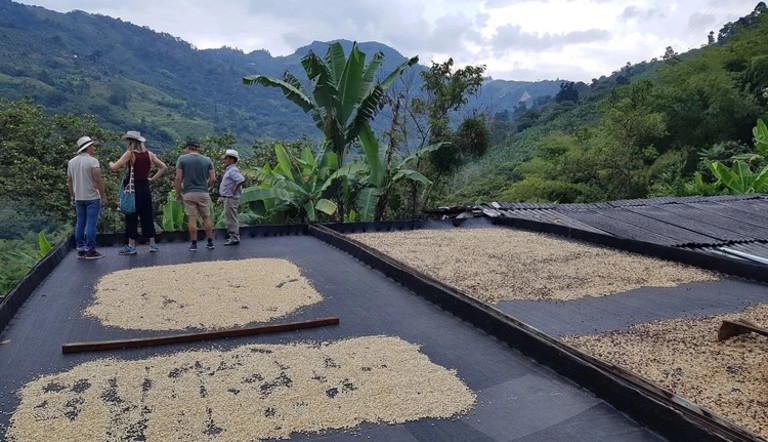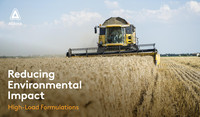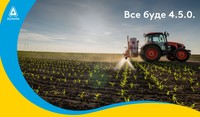
Colombia’s coffee growers turn to tourism to survive

Colombian farmers are known for producing some of the world’s best coffee, but in the western hills of the main growing region, coffee production has shrunk and been replaced by bananas, oranges and avocadoes. Low global prices and competition from bigger and more mechanized players, such as Brazil and Vietnam, have pushed many farmers out of production.
Thanks to improvements in the security situation, tourists are now flocking to Colombia – revenue has doubled since 2010 - and coffee tourism is helping to provide farmers with an alternative income. Near the rural village of Pijao, in Quindio province, a partnership between a young coffee tour company and local farmers and coffee businesses is doing just this.
The farmer turned tour guide
Coffee grower, Don Leo, grew up in the south of Colombia and started picking beans aged 12. Conflict and pressure from paramilitaries forced his family to abandon their farm and move to a new finca near Pijao seven years ago.
Things started to improve when he partnered with Juan David Agudelo, the young local founder of Experiencia Cafetera, a new tour company. Together, they have developed a one-day immersive coffee experience that has been hailed as one of the best in the country and Don Leo’s farm is now thriving.
He hosts a tour almost every day with his wife Ana and one of the bilingual guides from the company, showing tourists his coffee bushes and each process – picking, shelling, washing, sorting, drying and grinding. He also provides accommodation and has developed a premium coffee, which tourists can buy direct. In just four years, Don Leo has hosted tourists from 63 countries and this year he will to travel to Spain and Italy to talk to potential coffee buyers.
“Tourism has saved our farm”
Also adding value to their coffee and drawing in tourists, are Maria Orfilia Velandia Villamil and her husband Carlos. Just a few years ago they were selling beans to the mass market through a co-operative – and losing money. Now, they run a modern-looking artisanal coffee shop, La Floresta, in Pijao, which has been called “the best coffee shop in Colombia”.
Their farm is smaller now at 2.5ha, but produces premium coffee at a higher price, which they sell to tourists. They have also partnered with Experiencia Cafetera. The guides bring tourists to their café to do coffee tasting and learn about the roasting and brewing methods, which Maria Orfilia helps demonstrate.
“Coffee tourism has been very beneficial,” says Maria Orfilia. “The company is growing, so it is very important. Without coffee tourism and specialist coffee, maybe we would be broke or have to sell the farm. The impact in Pijao from coffee tourists is very positive, because the town is growing, and businesses are growing too – you can now find stores and new coffee shops here.”
Farmers and businesses dealing in non-premium coffee are also benefiting as coffee tours pay each business they visit and attract more tourists to the local bars and coffee shops.
For information about Experiencia Cafetera go to http://www.experienciacafetera.com/en



